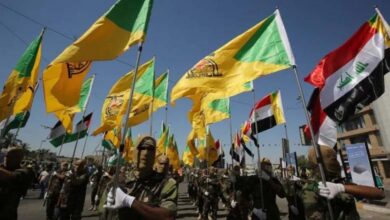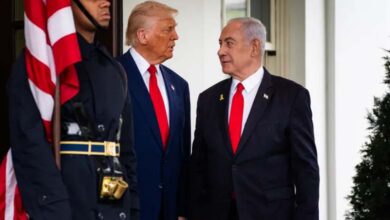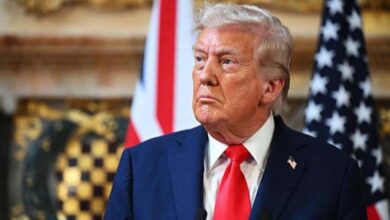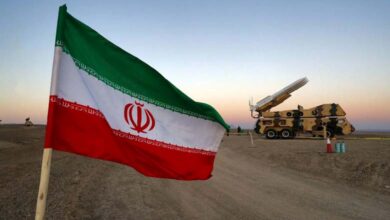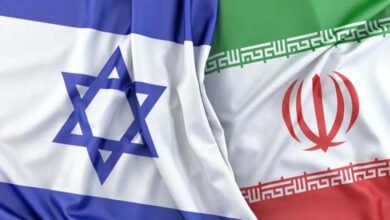How the Sudanese Judiciary Became a Tool for the Muslim Brotherhood… with Names
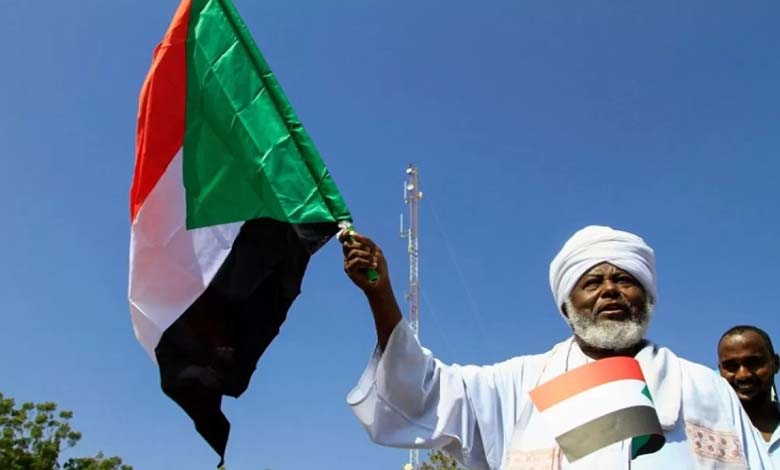
Sudanese lawyer and executive committee member of “Emergency Lawyers”, Rahab Al-Mubarak, revealed documented details about how members of the Muslim Brotherhood have taken control of key sectors of Sudan’s judiciary, turning it into a tool for suppressing opponents, funding war efforts, and shielding defendants from accountability.
-
Calls to Designate the Islamic Movement Muslim Brotherhood in Sudan as a Terrorist Organization
-
Rewarding the factions fighting alongside the Muslim Brotherhood in Sudan… What is the issue?
-
Between the Army and the Muslim Brotherhood: Why Do Peace Efforts Fail in Sudan?
Al-Mubarak spoke about the central role played by Muslim Brotherhood leader Ahmed Haroun—internationally wanted—in managing a network of judges loyal to the former regime. From inside Kober Prison, he supervised the reinstatement of dismissed judges and the unfreezing of assets and properties seized during Omar al-Bashir’s 30-year rule.
According to Al-Mubarak, the judiciary was used after the October 2021 coup to ensure impunity for regime figures. This was carried out through judges Abdelaziz Fath Al-Rahman (acting Chief Justice), Al-Amin Al-Tayeb Al-Bashir (Deputy Chief Justice), and Abu Subaiha, who overturned the decisions of the Empowerment Removal Committee and reinstated dismissed judges.
-
Killing Civilians and Looting Aid: Crimes Committed by the Army and the Muslim Brotherhood in Sudan
-
The Muslim Brotherhood in Sudan Seeks to Return to the Scene Through International Conferences… Details
She explained that meetings were held inside the prison with the participation of its director, which resulted in a “legal fatwa” allowing regime leaders to be released. Judge Abu Subaiha was tasked with restructuring the judiciary in favor of the Brotherhood, which included returning confiscated funds and unfreezing bank accounts.
Al-Mubarak also pointed out that this influence continued during the war that broke out in April 2023, as the judiciary became a platform for financing the conflict by collecting funds, exploiting judicial institutions for private investment projects, and silencing dissenting voices.
-
Amidst the Crimes of the Muslim Brotherhood in Sudan… The ICC Demands the Disclosure of Bashir and Haroun’s Whereabouts
-
Sudan Without the Muslim Brotherhood: Does Samoud’s Vision Pave the Way for War’s End?
-
Power Sharing Deals… New Maneuvers by the Muslim Brotherhood in Sudan
She stated that Ahmed Haroun reassigned loyal judges to key posts, starting with the executive office of the Chief Justice, headed by Judge Talal Hashem Qureshi, whom she described as “weak-willed and easily manipulated”. His deputy, Judge Al-Kabbashi Mohamed Omar, was reinstated after dismissal and is known for his total allegiance to the Islamic movement and ties to security services.
Al-Mubarak confirmed that Al-Kabbashi was previously involved in financial corruption cases in Kassala State and is now the real decision-maker in the executive office, with the authority to circulate official decisions.
-
Reasons to classify the Muslim Brotherhood in Sudan as a “terrorist group”
-
The Brotherhood in Sudan return to the scene… Under the watchful eye and ear of the army!
-
With a Major Arms Deal for the Sudanese Army.. Brotherhood Leader Salah Gosh Returns from the Shadows
In the services department, responsible for supplying provisions to judges, Al-Mubarak said Judge Malik Bakri was appointed as head after his reinstatement. His administration deducted monthly amounts from judges’ salaries without providing the corresponding services.
She accused Judge Malik Bakri of using the embezzled funds to establish fake companies under non-judicial names, operating in tahini manufacturing, meat export, and running pharmacies in safe states. He was also reportedly allocated three gold mining zones in the River Nile and Red Sea states.
-
Igniting war and army destruction… New accusations haunt the Brotherhood in Sudan
-
Among them is an intelligence officer.. Arrest of Brotherhood in Sudan
-
Sudan: How Did Independent Journalists Defeat the Muslim Brotherhood’s Media Machine?
Bakri appointed Judge Ayad Al-Tuhami to manage services in Kassala, providing him with housing in both Kassala and Gedaref, while other judges lacked basic housing due to displacement.
The lawyer concluded that the judiciary has turned into a “private investment firm” funding war and pursuing profit, while all voices calling for justice or opposing the war have been silenced under threats of imprisonment or execution on fabricated charges.
-
Sudan: The Muslim Brotherhood Attempts to Infiltrate the National Umma Party
-
The Muslim Brotherhood Threat Resurfaces in Sudan: Al-Baraa Militia Armed Beyond State Oversight
-
The Muslim Brotherhood Backs Al-Burhan: Fueling War and State Collapse in Sudan
-
From Al-Bashir to Al-Burhan: The Muslim Brotherhood Continues to Wreck Sudan
-
Between the Army and the Brotherhood… A Writer Summarizes the Sudanese Crisis
-
The Muslim Brotherhood Fuels Sudan’s War to Regain Power… How?
-
Muslim Brotherhood Security Cells: International Documentation Exposes a Plot to Silence War Opponents in Sudan
-
Under the Muslim Brotherhood’s Sponsorship Purges Cracks and Serious Violations within the Sudanese Army
-
How the Muslim Brotherhood Brought Misery to Sudan
-
Sudanese Demand an End to the Violations of the Muslim Brotherhood Brigades
-
How the Muslim Brotherhood Reshaped the Sudanese Army
-
Sudanese Children Pay the Price for the Brotherhood’s War
-
The Brotherhood Plans to Drag Sudan into Civil War… Details
-
Sudan’s Muslim Brotherhood Pushes Army to Attack U.S. Mediation
-
Are the Muslim Brotherhood Regaining Influence in Sudanese Trade Unions?



